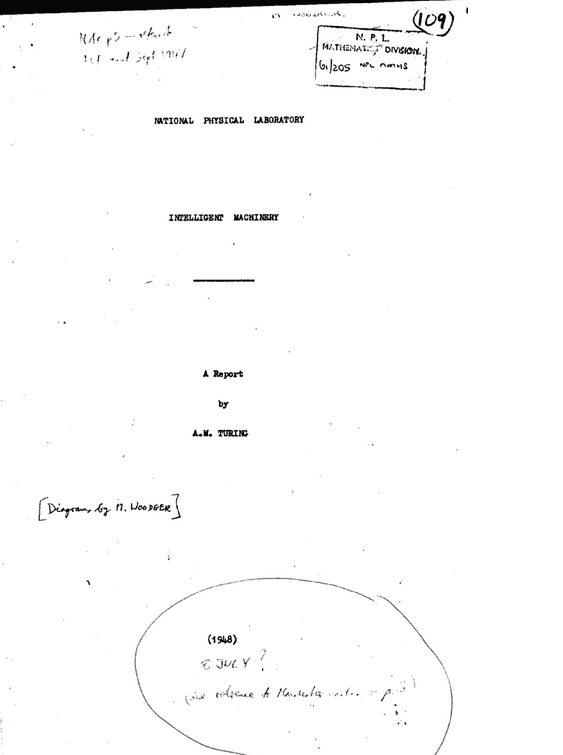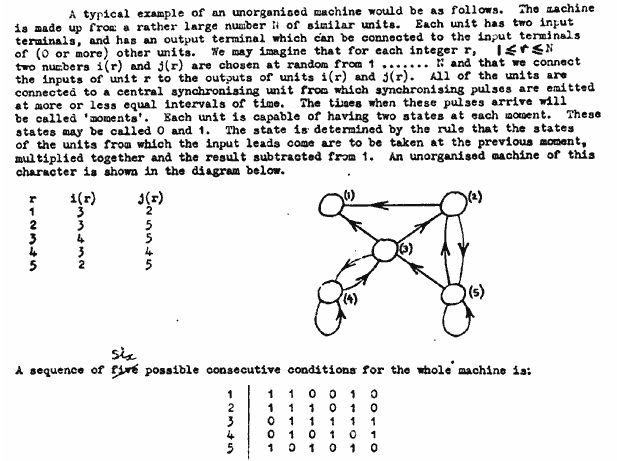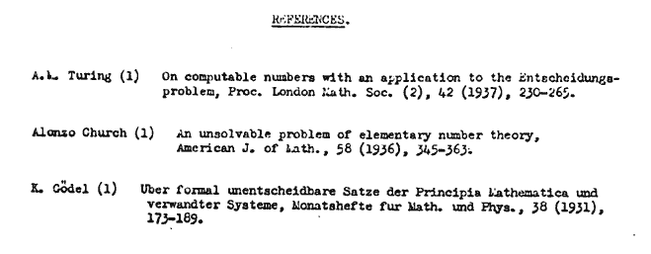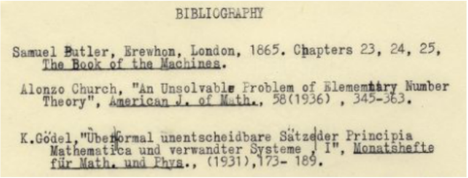Early Ideas, 1948-50
At a time when most computers were simple calculators, Turing envisioned the creation of a mind. In 1948, his paper Intelligent Machinery imagined mechanical randomization systems paralleling human choice.
Intelligent Machinery, 1948, Alanturing.net
In exploring computer intelligence, Turing frequently cited Gödel, Babbage, Lovelace, and his PhD supervisor Alonso Church as influences.
Turing's unique style of thinking factored largely into his role as a leader. Unconventionally, he saw that computers could be built with little knowledge but given the ability to learn as children do. The paper was not quite a revolution, but certainly the start of one.
“I suggest that there should be two keys which can be manipulated by the schoolmaster, and which represent the ideas of pleasure and pain. At later stages in education the machine would recognize certain other conditions as desirable owing to their having been constantly associated in the past with pleasure, and likewise certain others undesirable.” –Turing [13]
Intelligent Machinery, 1948, Alanturing.net







